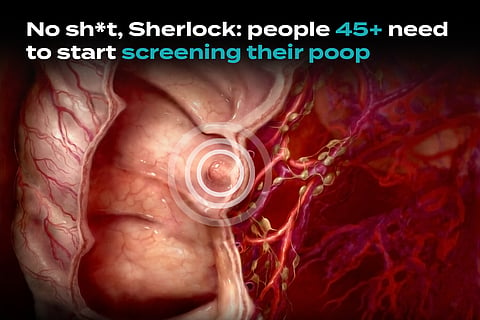Bridging the Gap - Health Equity for all
Fecal Tests: What Happens in the Bathroom, Shouldn’t Stay in the Bathroom
<p>For some people, what happens in the bathroom, stays in the bathroom. But when it comes to colorectal cancer, sharing what happens in the bathroom may save your life.</p>
<p>Colorectal cancer is a cancer that affects the colon (large bowel) or the rectum (last 6 inches of the colon) or both. It is the 4<sup>th</sup> leading cause of death in the world which mainly affects individuals, both males and females, over the age of 50. </p>
<p>When looking at who is at risk for colorectal cancer, there are 2 categories: those who are at average risk and those who are at increased risk for the disease. Increased risk means those who have been identified as having a colorectal cancer gene or those who have a close relative (mother, father, sibling) who had colorectal cancer. These individuals should start having regular colonoscopies (a medical procedure to view the large bowel) starting at age 50 or earlier, depending on the age the close relative was diagnosed. </p>
<p>Many individuals are at average risk for colorectal cancer. This means that they are between the ages of 50-75 and do not have any close relatives with a history of colorectal cancer. For these individuals, regular self-screening is recommended, which should begin between the ages of 45-50 years old and should be completed every 1-2 years. </p>
<h3>FOBT vs FIT</h3>
<p>Currently, there are 2 common types of self-screening tests available for average risk individuals: FOBT and FIT. The “F” of the tests stands for fecal, which means poop. Both FOBT and FIT are easy to do in the comfort of your own bathroom, requiring only a small sample of feces which is then either mailed or delivered to a lab for testing, depending on where you live.</p>
<p>FOBT stands for <i>Fecal Occult Blood Test</i> (the actual name is Guaiac-based fecal occult blood test<b> </b>[gFOBT], but the “g” usually gets dropped). Occult blood means blood that cannot be seen with the naked eye. This test uses a chemical in a paper test card that will react if there is occult blood in the feces.</p>
<p>FIT stands for <i>Fecal Immunochemical Test</i>. This test uses antibodies to determine results. Antibodies look for foreign substances in the body; therefore, the antibodies in this test are looking for occult blood.</p>
<p>In certain parts of the world, FOBT is recommended and in other parts, FIT is preferred, so which one is better?</p>
<figure><img alt src="https://cdn.storymd.com/optimized/4AwQkjUrdz/thumbnail.jpg" />
<figcaption><em>© 2016 Terese Winslow LLC, U.S. Govt. has certain rights</em></figcaption>
</figure>
<h3>And the winner is? </h3>
<p>Overall, the accuracy of the test results is similar making them both reliable self-screening tests. Also, the ease of collection and delivering the tests to the lab is the same regardless of which test is used. </p>
<p>Now, here is the difference: In terms of preparation instructions for the screening, the FOBT requires the individual to avoid certain medications, such as Aspirin or NSAIDs (naproxen or ibuprofen), and some foods for up to one week before collecting the sample. Foods that contain high levels of vitamin C, such as fresh fruit, can give a negative test result even when occult blood is present (false-negative), and red meats can give a positive test result even when there is no occult blood present (false-positive).</p>
<p>For the FIT, there are no specific preparation instructions or requirements to avoid certain medications or foods. Therefore, since FIT does not require any pre-planning or life adjustments, the FIT would seem to be the test of choice.</p>
<p>Ultimately, it is a good idea to see if your district only allows one type of test. For example, Ontario, Canada only allows FIT for its publicly funded screening program. </p>
<p>It is always good to discuss your risk of colorectal cancer with your health care provider. Together, you can decide on a screening routine that works best for you. </p>
<h2>More on Colorectal Cancer</h2><ul><li><a href="https://soulivity.storymd.com/journal/bmp8kdxf6j-colorectal-cancer" target="_blank">Colorectal Cancer: Risk Factors, Symptoms, Prevention</a></li><li><a href="https://soulivity.storymd.com/journal/vj6dk3rszw-colorectal-cancer-prevention" target="_blank">Colorectal Cancer Prevention: Risk and Protective Factors</a></li><li><a href="https://soulivity.storymd.com/journal/bmp8dvec6j-colorectal-cancer-screening" target="_blank">Stool and Visual Screening Tests to Detect Colorectal Cancer and Polyps</a></li></ul>


